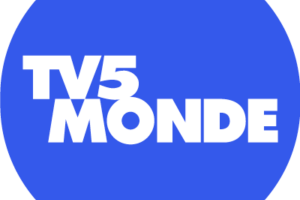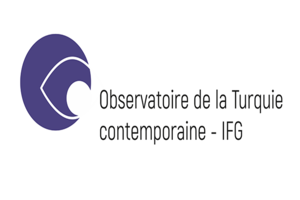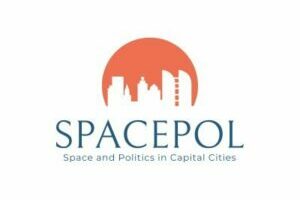Mutations de Ia rue Istiklâl, les Champs Elysées popu d’Istanbul, article du New York Times

ISTANBUL — Istiklal Avenue is Istanbul’s Champs-Élysées, or its Times Square, far from loved by the city’s sophisticates but a place everyone goes to, if only to get to somewhere better.
In good times — and there were plenty in recent years as Istanbul rose on the global stage — it was a rollicking street fair of shoppers, diners, protesters, street musicians and beggars, roughly a mile-long sea of humanity, with a quaint streetcar rumbling down the middle.
These days, though, it is a symbol of the city’s malaise.
Up and down Istiklal, metal gates, streaked with graffiti and adorned with “For rent” signs, have been lowered over stores, ice cream parlors, restaurants and cafes. Art galleries and book shops, once signposts of a city’s cultural exuberance, have disappeared. Even Starbucks has closed one of its cafes.

“The situation is terrible, and it’s been bad for a while,” said Mehmet Emin, 44, who works at a hotel cafe off Istiklal and owns a luggage store on it. “This is the economic heart of the city. For years, shops opened and business was good.”
There seems to be no end to Turkey’s many troubles, from a failed coup attempt to frequent terrorist attacks to spillover from the civil war in Syria that has packed millions of migrants into Turkey’s cities. All of that is felt these days on Istiklal.
While the street can still draw a crowd, especially on weekend nights, there are noticeably fewer tourists and more beggars and musicians from Syria. There is also a heavy police presence, and a nervous energy that could be a hangover from a suicide attack in March that killed several people.
“People are very much on edge,” said Mesut Arici, 27, who works at a shoe store near where that bombing occurred. “I’m very worried and on edge, but what can we do? Life has to go on.”

The elements of Istiklal’s decline were evident well before the recent downturn. For years, the city’s intelligentsia bemoaned the changes taking place not just on the street, but in the entire neighborhood, called Beyoglu. Once a cosmopolitan place of old cinemas, bookshops, outdoor cafes and dive bars, it had evolved under the Islamist government of President Recep Tayyip Erdogan into a tacky urban space dominated by chain stores and faux-Ottoman shopping malls.
“All the characteristic landmarks that made Beyoglu special disappeared one by one,” said Mucella Yapici, a member of Istanbul’s Chamber of Architects. That group has opposed many of the government’s urban development projects, including the one for Gezi Park, at one end of Istiklal, that set off antigovernment protests in 2013. “And the neighborhood turned into a place that entirely lost its soul. Old taverns, bookstores, theaters, and especially movie theaters, shut down.”
The government, Ms. Yapici noted, has removed the protected status of some historical buildings to make way for new ones. It also changed the law to allow longtime tenants, whose rents had been below market rates, to be evicted. These tides claimed one of the most famous places on the street, an old corset shop.
What replaced the old hangouts were chain stores, fast-food restaurants, fancy cafes and shopping malls, all of which are now feeling the effects of a declining economy brought on by a fall in tourism.

“As historic businesses left Beyoglu one by one, mega shopping malls and upscale chain restaurants replaced them,” Pinar Tremblay, a Turkish journalist, recently wrote in Al-Monitor. “These upscale businesses could have lasted longer had it not been for a series of unrelenting terror attacks and disastrous foreign policy adventures dramatically curbing tourism.”
Critics say that the government, in pursuing an Islamist agenda, also made it more difficult for bars and restaurants to obtain liquor licenses and — most troubling for many of Istanbul’s liberal elites — ordered cafes in some areas to stop setting up tables on the streets.
“Erdogan killed that street,” said Ergun Cagatay, 80, a photographer who for decades has captured the city with his camera, standing in one of Beyoglu’s back streets that was once a popular outdoor space. Asked why the president would do such a thing, he said it was because, as an Islamist, Mr. Erdogan has an “allergy for drinking.”
Of course, Turkey is a deeply religious country and many Turks are happy that Mr. Erdogan’s government cleaned up some of the seedy places of Beyoglu.

“There used to be some very disgusting places, with prostitutes near mosques,” said Rahzim Akcan, who runs one of the oldest restaurants in the neighborhood, Haci Abdullah Saray, which opened in 1888.
But at lunchtime on a recent day, the dining room was empty. “It’s really bad,” he said. “There’s no tourists. Maybe only a few Arabs.”
Cuneyt Celil Can, whose family owns several buildings on Istiklal, said the loss of the outdoor cafes had sent people elsewhere, “where they can smoke, drink and eat freely.” For the first time in 35 years of owning property on Istiklal, he said, he has an entire building vacant, because a law firm left after the bombing.
In the heart of European Istanbul, Istiklal — which means independence in Turkish — was once called the Grande Rue, modeled on the wide boulevards of other European cities. From the late Ottoman Empire until the 1930s, it was more common to hear French spoken there than Turkish, as the area was mainly for foreigners and Muslim Turks were a minority there.

European powers built their embassies and churches there during the Ottoman Empire, and the avenue has long been the anchor of a section of the city with a European flair that sets it apart from the centuries-old mosques and wooden houses in the old city, just across the Golden Horn waterway.
Back then, residents called the area “little Paris” or, less optimistically, a “second-class Paris,” said Brendan Freely, a historian and longtime chronicler of Istanbul life who has written a book about the neighborhood with his father, John.
For Istiklal’s old-timers there is, always, the allure of nostalgia for a time when no one would think of stepping onto Istiklal without being dressed in their finest, men in suits and women in dresses and hats.
“Everyone used to come here and shop,” said Ali Ihsan Batur, who runs a tiny chocolate shop on Istiklal that has been in his family for 99 years. “If they heard about a new perfume in Paris, they would come here to try it.”

He added: “You would have a bar next to a synagogue. And there were lots of cinemas.”
Nowadays, with so many Syrian refugees in the city, and Arab tourists seeming to outnumber Europeans, Arabic signs have gone up at cafes and shops off Istiklal, and narghile cafes — where patrons smoke flavored tobacco out of water pipes — have proliferated.
Sinan Sokmen, who runs a tour guide business in Istanbul and lives in Beyoglu, lamented that one of his favorite restaurants, which had a coat check and required a reservation, is now a narghile cafe.
At one end of Istiklal, near Taksim Square and next to the French Cultural Center, Ahmet Aslan has a red cart from which he sells simit, a standard Turkish street delicacy that is a cross between a pretzel and a bagel, covered in sesame seeds.
In recent years, he said, “it was packed. You couldn’t even stand without people brushing up against you.” Back then he sold up to 600 simit a day, but now only 100 or so.
Waving a hand, he said, “Look, it’s empty.”



